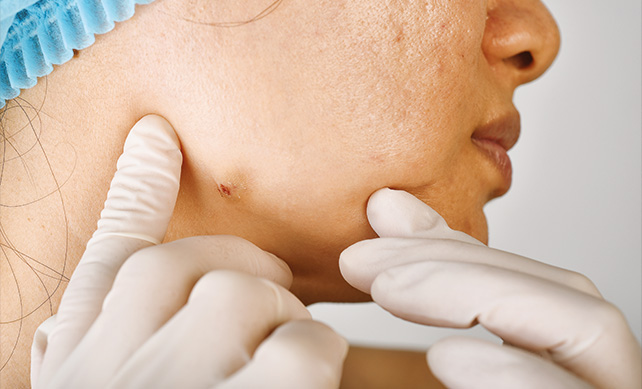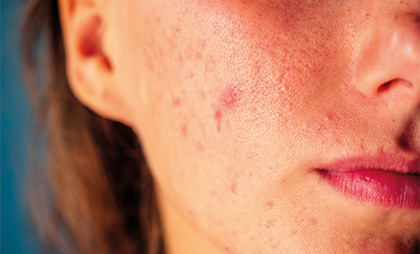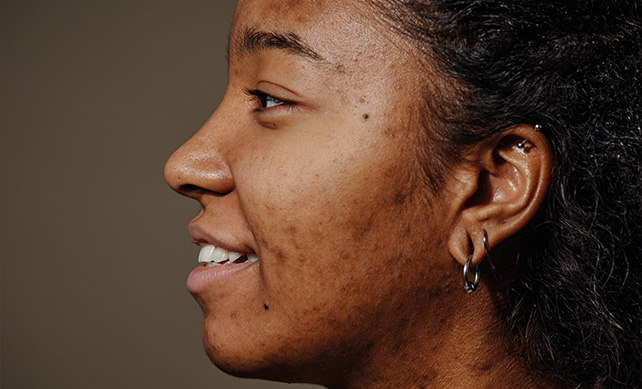Acne scarring occurs due to the skin’s natural healing process following inflammation or damage caused by acne breakouts. As the skin heals, it may produce too much or too little collagen, forming scars. When acne lesions, such as pimples, cysts, or nodules, become inflamed or infected, they can damage the skin tissue and collagen.
There are several types of acne scars:


Acne scarring can cause significant emotional distress and impact a person’s self-esteem. Various treatments are available to improve the appearance of acne scars, including:
It is essential to consult with a dermatologist or healthcare professional to determine the most appropriate treatment for your situation.
There are several treatment options available to improve the appearance of acne scars. Treating acne scars depends on the type and severity of the scarring. Individual factors also matter, such as skin type and overall skin health. It is essential to consult with a dermatologist or healthcare professional to determine the most appropriate treatment for your situation. Some common treatments for acne scars include:
